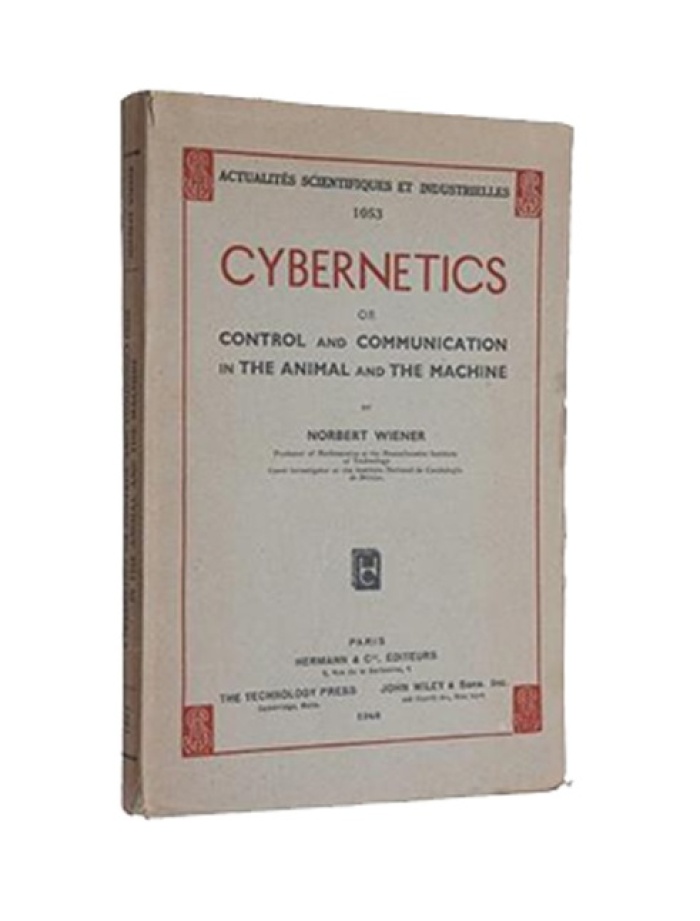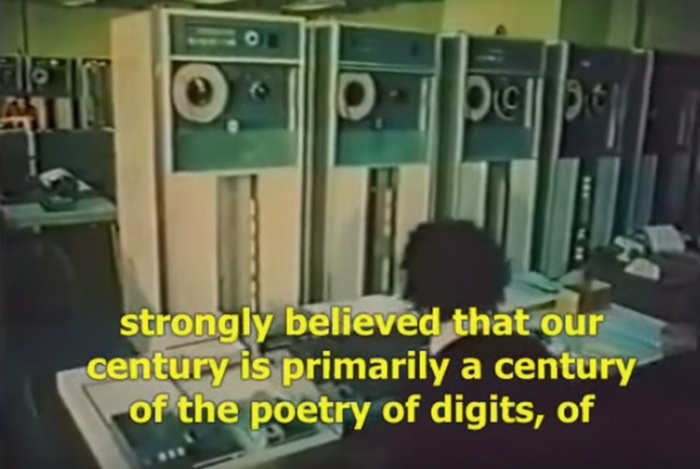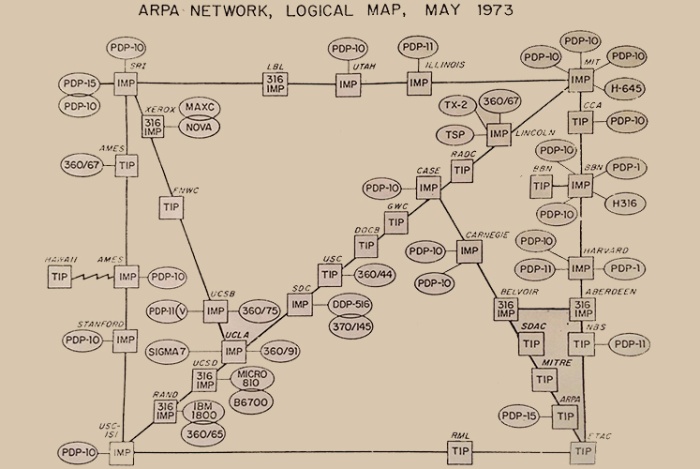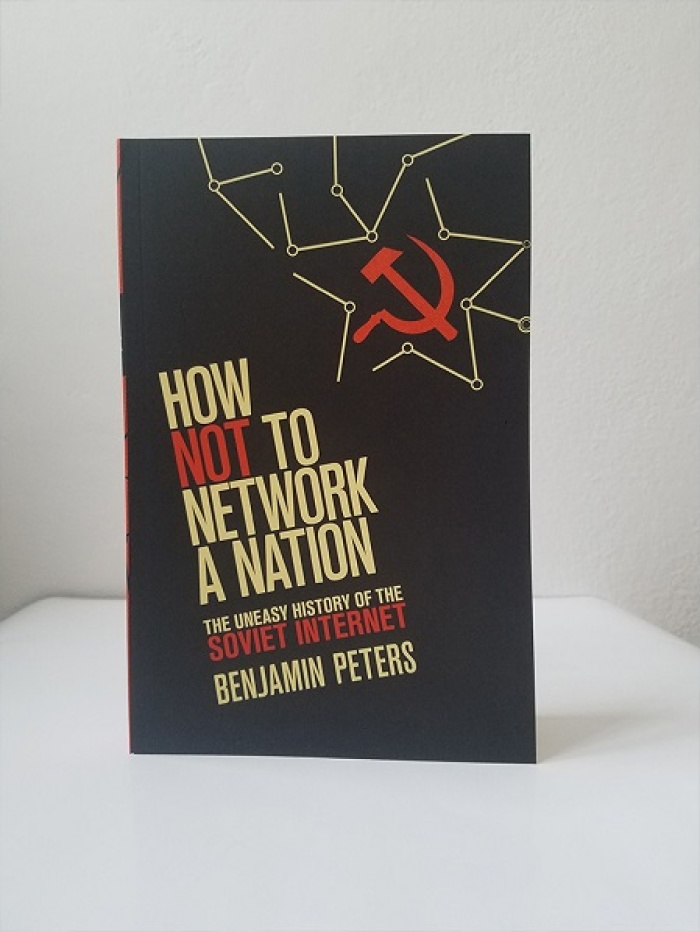Never have so few people held so much power over so many. With this power comes the ability to monitor the present and predict the future behaviors of not just individuals, but entire populations. Tech giants are, without a doubt, heavily influencing the way campaigns, governments, and politics operate. In this interview Ben Peters, author of How Not to Network a Nation? (MIT, 2017), explains what the Soviet experience can teach us about our own ongoing technological crisis in the name the ruthless maximization of profits and state control.
Krzysztof Gutfrański: How would you explain to someone born in the ‘90s the phenomenon of the Soviet internet and state socialist information society?
Benjamin Peters: The 1990s, as Lawrence Lessig once pointed out, was swept by two simultaneously new frontiers – the internet and the former Soviet Union. Both took shape at roughly the same time (during the decade in which you were born) and both seemed to promise, at least initially, endless growth and untold possibilities for a better world. Both promises, of course, led to disappointment: unfettered capitalism was good for neither the “frontier” of cyberspace or shocked former Soviet economies. But it’s important to realize that the history of the internet does not begin in your decade. It begins much earlier. Thirty years earlier, for example, Soviet experts were first dreaming of using computer networks to automate and optimize the enormous coordination problems facing the planned economy. If only a computer network, they thought, could animate the sluggish body of the planned economy like a nervous system for the nation! For many cyberneticists starting in the late 1950s and early 1960s, Soviet computer networks promised no less than to usher in Marx’s vision of a future socialist society. In this utopian future, the dirt and disgrace of hard currency of cash would dissolve into a system of contracts and automatic exchanges in an economy run by the state for the people, and this was forty years before PayPal.

Klatka z rosyjskiego programu telewizyjnego o Wiktorze Głuszkowie. Źródło: https://www.youtube.com/watch?v=Wu0dOid3t-o
How did cybernetics and the digital era start in Soviet Russia? It seems like Stalin was not a big fan of the word cybernetics and Soviet Russia was never a tech empire in a contemporary sense.
Several chapters in my book cover the Soviet (Stalinist) rejection, (post-Stalinist) romance, and (Khrushchevian) retrofitting of cybernetics in the intellectual milieu for attempting to usher in a networked information age in the latter half of the twentieth century. Soviet Russia was, especially under Stalin, a quintessential tech empire if (and this is an important if) one considers, as the Soviets did and perhaps we should too, technology to be openly and obviously industrial and ideological, and certainly not primarily personal. “Big tech” today – Google, Amazon, Facebook, Microsoft, Apple – don’t just produce convenient devices that fill our personal lives; they also all run industrial warehouses, coal-powered data farms, global supply chains, transportation routes, and the massive coordination and production of material stuff; in other words, of course, the industrial and the ideological elements of big tech have not disappeared, although those values are now hidden out of site, and not the marching orders they once were under Soviet cybernetics. How stark the contrast between the social values attributed to “big tech” then and now: in Soviet eyes, cybernetics existed to increase the productivity of labor, while today’s users imagine that our phones and computers distract us from a lived experience. I suspect that no sober observer today believes either.
Norbert Wiener’s Cybernetics had been removed from general circulation due to the anti-American campaign against cybernetics in the ‘50s and stored in a top-secret military research library. How do you see his influence on Soviet Russia? Was it a Soviet call for the “increased productivity of labor?”
In the book I describe how, in 1960, during his first visit to St. Petersburg, Moscow, and Kiev, Wiener was welcomed almost as if he were a prophet returning home from abroad. As I describe in an article on the “Strange Loops of Norbert and Leo Wiener” in The Russian Journal of Communication, his father, Leo Wiener, an emigre from Białystok, helped found Slavic studies in America, and that both father and son were preoccupied with the languages of their enemies, whether Russian or computational. Given all this, the notion of Wiener as a foreign founder returning home might not be entirely off the mark: rumors hold that he spoke Russian, although I have seen no direct evidence of it in his personal archives. The joke holds that, somehow especially fittingly for a mathematician, Wiener could speak so many languages that he could be misunderstood with equal fluency in all of them. His criticism of American industrial capitalism was particularly politically convenient for Soviet officials: he even wrote a novel The Tempter criticizing the patent system. Philosophically, Wiener espoused a material-information dialectic that resonated with Soviet philosophy of science as well as Soviet labor concerns about, as Wiener put it, the second industrial revolution that would replace not only the hand, but the mind, with the machine. In his Moscow lecture, Wiener criticized both American and Soviet sciences for ideological capture, although his criticisms of the Soviet regime were somewhat muted by editors and censors before being published in Voprosy filosofii.

Okładka pierwszego wydania książki Norberta Wienera pt. "Cybernetics or Control and Communication it the Animal and the Machine" (1963). Źródło: wikimedia commons.
And how did the Soviets react to the cybernetic challenges posed by the USA? I’m thinking here of ARPANET etc.
I’m not aware of the Soviets reacting directly to the ARPANET, although it seems clear that by the time that the Politburo met on 1 October 1970 to decide whether or not to support Viktor Glushkov’s OGAS Project, they were quite clear that the Americans had already developed the North American SAGE Project. Still, in the balance of cybernetic anxieties, I am most aware of hand-wringing among American specialists about the cybernetics challenges posed by the Soviets, and not as much in the opposite direction. By the mid-1950s, cybernetics was taking off in the Soviet Union; at the same time, it fell largely out of favor among elite English-language scientists and instead enjoyed a long field-delegitimizing popularization in American society. (Today one can still read books about the cybernetics of long-distance running.) So, for the most part, the USA didn’t think of its prize stallions in the cold war tech race – nuclear bomb, rockets, satellites, manned space flight, computer networks, etc. – as explicitly “cybernetic.” Throughout the late 1950s and the mid-1970s especially, the Soviets thought of theirs as cybernetics, and then later informatics.
What was the Polish contribution to cybernetics in a global sense? You mention Warsaw in six Dialogues on Cybernetics (1954) and Paul Baran (1926–2011), one of the main researchers into computer network design.
One of the underlying, if still largely implicit, arguments of the book is that the prominent peripheries often drives the center: in particular, even though the case study at the center of its argument – Viktor Glushkov’s support of the OGAS Project – was ultimately not successful on its own terms, it nevertheless influenced the Soviet computer network experience, and it did so from Kiev, Ukraine. Other case studies are alluded to, such as hotbeds of intellectual activity in St. Petersburg, Akademgorodok (the secret Soviet science city), Bulgaria, and, yes, Poland! In fact, the Dialogues on Cybernetics appear, in Polish, to be the original foray into cybernetics behind the iron curtain. I do not know what, if any, influence Baran’s Polish roots had on his monumentally influential network design innovations. In fact, I am not aware of a proper treatment of either potentially intriguing story that would sound out in Polish the global translation of the cybernetic milieu, although I am hopeful readers will either correct me or tell that story themselves. Of course, one of the most stirring (if still techno-solutionist) cybernetic voices can be found in Stanislaw Lem’s early Dialogues and mature Summa Technologiae, although other things could still be said about Copernicus, Stefan Banach, Marian Mazur, and many others. One might also argue that Leo Wiener, a lion of a man from Białystok, emigrated from Poland, but here again I’d wager that fixing national origins will illuminate far less than appreciating the general turbulence of dynamic systems, such as the nation-state, in understanding the intellectual impetus of (especially European) cyberneticists.

Klatka z rosyjskiego programu telewizyjnego o Wiktorze Głuszkowie. Źródło: https://www.youtube.com/watch?v=72SVeO_xmxg

Klatka z rosyjskiego programu telewizyjnego o Wiktorze Głuszkowie. Źródło: https://www.youtube.com/watch?v=72SVeO_xmxg
How would you describe the importance of OGAS for Soviet Russia?
Having written a book on that, I am still not sure I can respond in a single paragraph. Instead, I’ll take a paragraph or two to refresh the question: the OGAS – or All-State Automated System – was in its time the most ambitious attempt to network a nation for civilian purposes the world had ever seen – and the historical failure of that network is neither natural nor inevitable. The story is important on its own terms. In addition, today, there are many important things we can learn from the OGAS and other early attempts to develop computer networks for Soviet society and most of these lessons, as I detail in the book, stem back to how we relate to one another through networks today: the OGAS story teaches the entrepreneurial classes not to put too much trust into technocratic solutionism but instead to attend to institutional practices and cultures of trust. It asks a fuller struggle to articulate what the internet today is used for; it demands that more attention be paid to longer traditions of surveillance and privacy exploitation; it challenges the status quo of much of the liberal economic discourse that clings to network and society debates after the collapse of the Soviet Union, and much more.
Perhaps a paragraph from the book sets up the question best:
Beneath the modern imagination of smooth steel-brushed machines interlinked by wires, signals, and smart protocols pulse the vibrant social networks of relations whose virtues and vices have long been part of the human condition. To understand modern networks is at root an exercise in social self-discovery. Our network world shares with the fate of the OGAS Project the vices of self-interest, apathy, back-stabbing, vain imaginations, stupid conceit, poshlost’ (roughly the ‘self-satisfied vulgarity’ of the petty businessman and administrator, such as Chichikov in Gogol’s Dead Souls), and all the rest. At the same time, it also shines brightly with generosity, engagement, visionary insight, genius, byitie (another untranslatable Russian term meaning roughly ‘being,’ ‘apperception,’ or a higher state of conscious reality that is resonant with Heideggerian being and scriptural genesis), and much more. The networks binding the human condition can be neither separated nor reconciled. Modern observers can no sooner state the optimal conditions under which humankind has or will best enter the age of global computer networks than we can solve the puzzle of the human condition itself, although the attempts to solve the puzzle are worthwhile (203).
The mind analogies often used to describe computer networks all share a common cybernetic impulse to analogize between information systems underlying organisms, machines, and societies. Were the national networks of Soviet Russia and the USA envisioned as a brain-like structure? And, if so, in what ways did this analogy manifest itself?
In the Soviet Union, the command economy resembled the body, with the economic planning apparatus as its nervous system and Moscow planners as the brain, and in the West, after the ARPANET was commercialized, there was nobody outside of the brain for the whole national network of users now constituted a kind of nationally distributed brain itself. Or, to riff off of my comments elsewhere, there are many brain-computer metaphors – and none of them are right. As I am developing in my current book project tentatively titled The Computer is Not a Brain: How Smart Tech Lost the Cold War, Outsmarted the West, and Risks Ruining an Intelligent World, the mid-twentieth-century pedestaled the wrong image of the ideal computing processor for the ideal computing processor is not the human brain. (Moreover this towering intellectual hubris – or what brains think about themselves – builds naturally on a troubling early modern vaulting of western individualism.) Cybernetics, after World War II, enabled strong neural-computer network analogies to be at work in Warren McCulloch’s influence on Paul Baran’s distributed network design at RAND, in Stafford Beer’s influence on Allende’s Cybersyn network in Chile, and in (as I detail in the book) Viktor Glushkov’s influence on the OGAS Project in the Soviet Union. Each had different consequences in different places: to put it in a nutshell, the ARPANET designers imagined their nation as a single distributed brain of users, while the OGAS Project designers (not entirely unlike Beer in Chile) imagined their network as a nervous system to be layered onto their nation as an economic industrial body of workers, with the state as the brain. To suggest that the first American computer network was modeled after an imagined national brain and the Soviet networks were modelled after a national body not only rehearses the mid-century emerging information and industrial cold war economic differences – but it also obscures the on-the-ground story of both. I think the biggest difference lies, not in the metaphors, but in the distance between all those brain-computer metaphors and the embodied practices of building and institutionalizing computer networks. No national network projects resemble the human mind in practice.
If I were asked to anthropomorphize modern-day computer networks with a human organ today, I might suggest the liver instead of the brain: consider the internet as an unromantic filter for most cultural consumption that secretes bile and, when pickled, can endanger the whole social system. It does not seem that far off sometimes. Perhaps a modern-day underground man might have the internet in mind were he to pronounce for his generation, as Dostoevsky’s character did, that “my liver is diseased.”

Plan ARPANET z 1973 roku. Źródło: wikimedia commos.
Glushkov framed paperless money transfers as a Marxian prophecy of a future Communist society without hard currency. Can you elaborate on this idea and tell us why it is difficult to compare it to today’s e-commerce or cryptocurrencies?
Because ideology gets in the way. The comparison is certainly there if we want to see it: there is little separating the skeletal promises and concepts behind cryptocurrencies and those behind Glushkov’s proposal to virtualize all Soviet exchanges in the planned economy into a dynamic real-time ledger of account transactions. In other words, he wanted all institutions to be able to exchange currency on a decentralized record spread throughout the entire national network. Of course, formulated in the early 1960s, Glushkov’s proposal had none of the features that most enthusiasts recognize as essential to cryptocurrencies – the blockchain distributed ledger, proof of work demands, etc. – but they may be wrong to emphasize those details and not what a Bitcoin enthusiast and Glushkov see: the technological means for transcending the grubby, fallible, and trust-based lifeblood of the real world economies with the promise of total, automated record-keeping. Despite the complaints of libertarian cryptocurrency enthusiasts, I think it would be richer to see contemporary blockchain as an ironic fulfillment of the moneyless future that Marx predicted – or rather, a fulfillment, as David Graeber points out, of a radical future that may never come.
Was hacking relevant in Soviet times?
If we squint just a bit, it is hard not to think of hacking in the Soviet times! If we take hacking as a kind of sociotechnical craft that cleverly problem – solves and sometimes subverts the established formal system – in other words, if we think about hacking before computer networks – then what about daily Soviet life would not require a kind of hacking? Ferocious intellects, both then and now, are often drawn to mathematics and coding under the false belief that they are politically neutral fields: rather, in the Soviet and contemporary Russian context, programming often survives as a field because it comes with both high labor costs and low overhead costs. More broadly still, reading the newspaper Pravda between the lines required the acumen of a cultural semiotician or programmer. Securing an apartment, a car, or a job often required navigating complex interpersonal and bureaucratic networks. Navigating the gray economy successfully required inventiveness, insider knowledge of the system, vertical bargaining, blat, barter, bribes, and the black market. I am not arguing that living in Soviet times makes you into a hacker, but I doubt many sober observers are all that surprised, as this recent book From Russia with Code shows, that the collapse of the Soviet Union powered strong global migrations of Russian computer scientists.
What is the relation of cybernetics to chess, a game much cherished in the last decades of the Soviet Union? In your book, you compare it to Drosophilia...
Chess is the world’s second most popular war game (after Go) and famously, according to Alexander Kronrod, and then American computer scientist John McCarthy, the “drosophila of artificial intelligence,” or the ideal experimental subject or petri dish for computer scientists to pursue the evergreen promise of thinking machines and long-term planning. Chess offers a simplified game theoretic model of cold war confrontation: two diametrically foes sit opposite one another, plotting in rational moves the endgame of the other. In the book, I explore the fascinating connections and resonances between Mikhail Moiseevich Botvinnik, the patriarch of Soviet chess and a decorated engineer, and his connection with computer chess, industrial computer networks, and long-term planning strategies – including connections with Glushkov and others. I’ll leave off with a quote from the book:
Simultaneously, the experience of Soviet computer chess also underscores the critical fact that, although military and civilian projects in the Soviet Union suffered from being strongly separated, the cold war culture—especially cybernetic tools, game theoretic strategic thinking, and the computational management of limited resources—has spread the influence of military and strategic thinking far and wide into everyday matters of politics and economics. In chess as in planning, the separation of military and civilian administration offers no guarantee of the same in modern society (180).

Okładka książki Benjamina Petersa "How Not to Network a Nation. The Uneasy History of the Soviet Internet" (MIT Press, 2017).
Never have so few people held so much power over so many, with the power to monitor the present and predict the future behaviors of not just individuals, but entire populations. Tech giants are, without a doubt, heavily influencing the way campaigns, governments, and politics operate. What can the Soviet experience teach us about our own ongoing technological crisis and digital colonialism in the name of the ruthless maximization of profits and state control?
*Head nods solemnly* Well said.
Instead of an answer, let me observe a special fact and then a joke: today, as we are conducting this very interview, we are communicating via a network on the precise 50th anniversary of the first message ever sent between two distant computers. So perhaps we can mark this anniversary with a joke: “Lo” was the first network message ever sent. (Only the first two letters of the word “login” sent before the first connection on October 29, 1969 failed.) I see this as evidence that God speaks today but not as in “lo and behold my creation the internet.” Rather it is evidence that God speaks Hebrew afterall: “Lo” (לא) means “no.” In other words, in the beginning God created the internet, and he beheld it and said, “no.” And that more or less summarizes the state of things online every since, or at least so as we are only beginning to understand anew: the internet is experiencing its mid-life crisis!
Helsinki, Finland
29 October 2019
BIO
Benjamin Peters is a media scholar, author of How Not to Network a Nation: The Uneasy History of the Soviet Union (2016), and editor of Digital Keywords: A Vocabulary of Information Society and Culture (2016). He is Hazel Rogers Associate Professor and Chair of Media Studies at the University of Tulsa and affiliated fellow at the Information Society Project at Yale Law School. He is currently working on projects that uncover and critically reclaim the secret histories of Soviet AI (tentatively titled The Computer is Not a Brain: How Tech Lost the Cold War, Outsmarted the West, and Risks Ruining the World) and Russian hackers. His coedited volume Your Computer is on Fire is forthcoming from MIT Press. Tweet @bjpeters. More at benjaminpeters.org
Krzysztof Gutfrański is curator, editor and researcher. His contextual research practice is pivoted on issues of social engagement, alternative education, theory of value, and non-functional thinking in the era of systemic and technological transformations. Krzysztof has worked in curatorial departments of institutions including the Centre of Contemporary Art in Toruń/Poland (2009–2011), National Gallery of Art Zachęta in Warsaw/Poland and Centre for Contemporary Art Ujazdowski Castle in Warsaw, where he is currently Chief Editor for quarterly OBIEG.
He has worked as researcher for leading Polish and Brazilian NGOs. His curated and co-curated projects include: Dis-Othering: Beyond Afropolitan and Other Labels (OBIEG, Bozar, Savvy Contemporary, 2018–2019); País do futuro at Ateliê Espai in Belo Horizonte/Brazil and long-term research projects Trauma & Revival (Bozar in Brussels/Belgium, Fondazione Pistoletto in Biella/Italy, 2017–2018) and the Game of States archive, presented amongst others in Palais de Tokyo in Paris/France: Le Bord des mondes, Paris (2015). He has continued his long-term project based on alternative economy of agromining and impacts of terra-deformation in the Brazilian state of Minas Gerais since 2014. From 2010 to 2015, he was chief editor of Alternativa for the Wyspa Art Institute in Gdańsk. Gutfrański’s practice involves extensive work in editorial research focused on using the publications in the era of information overload.



